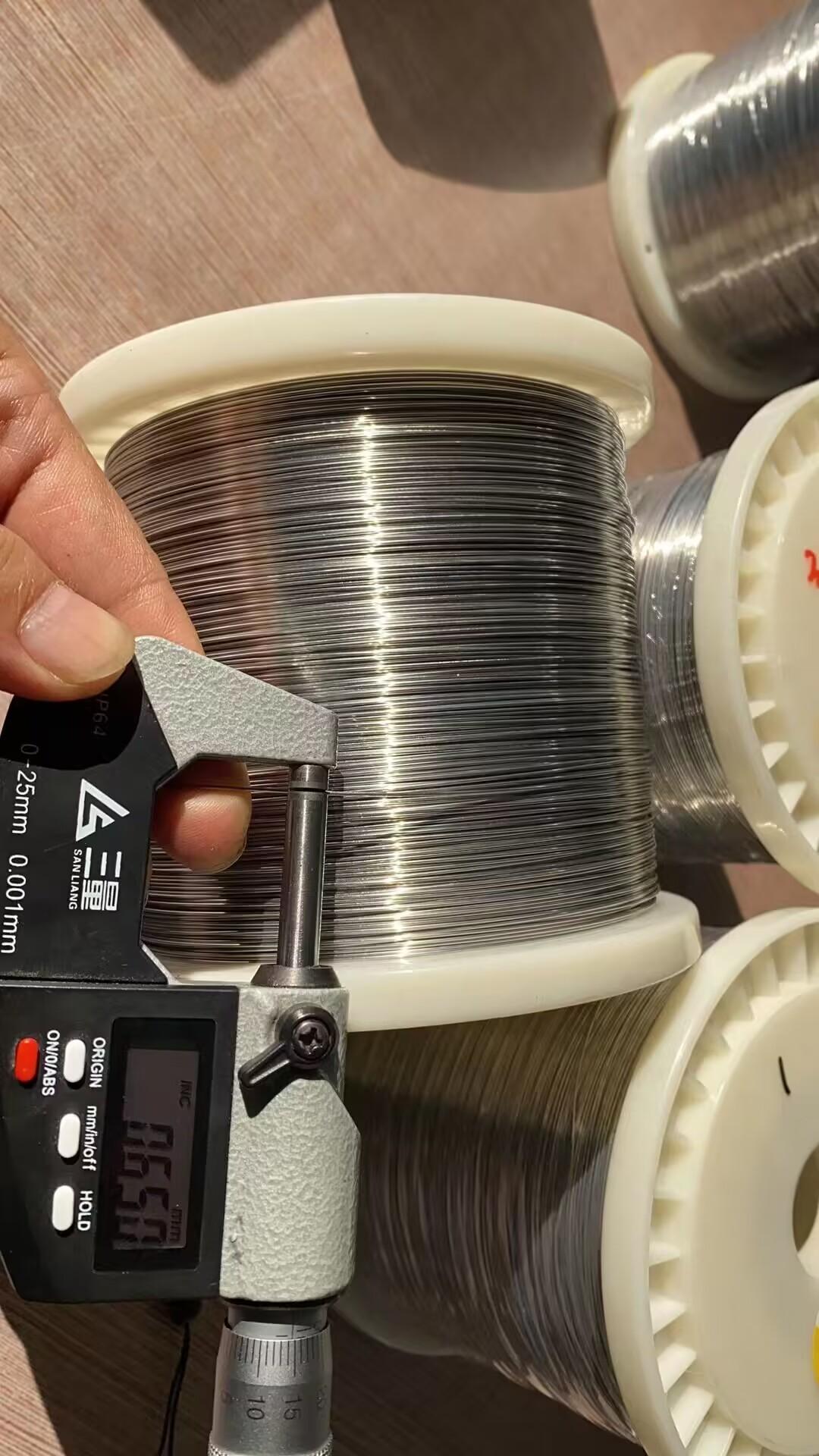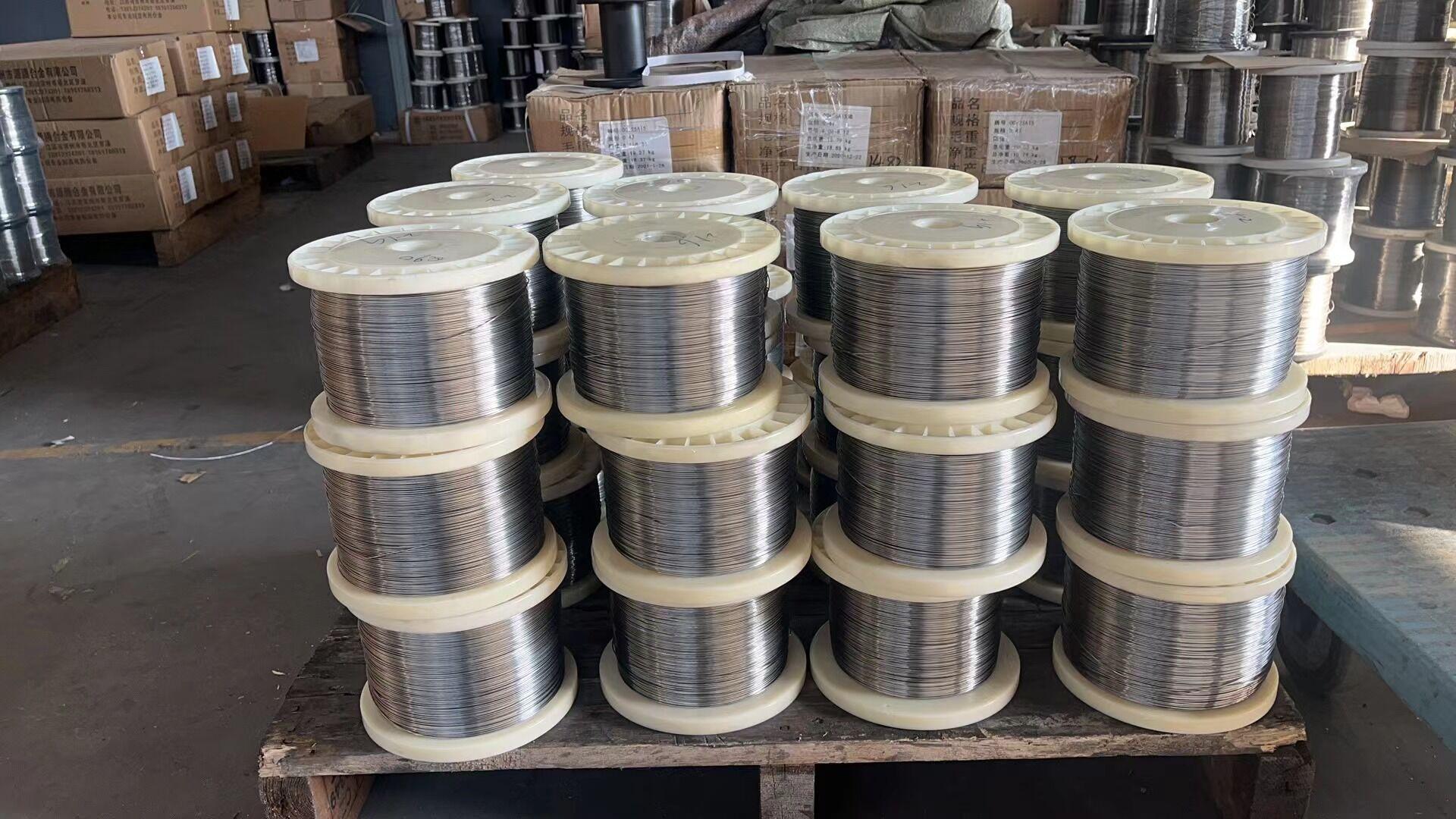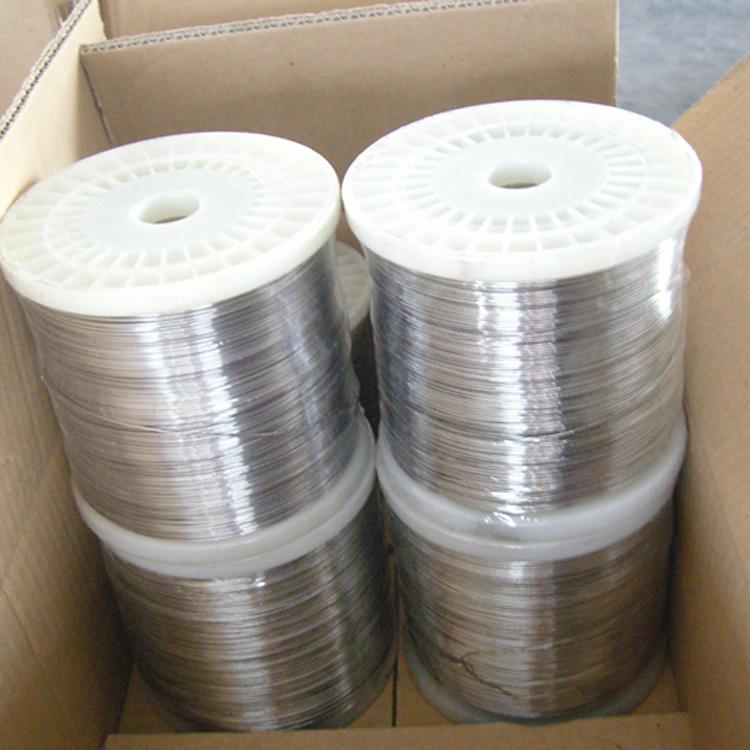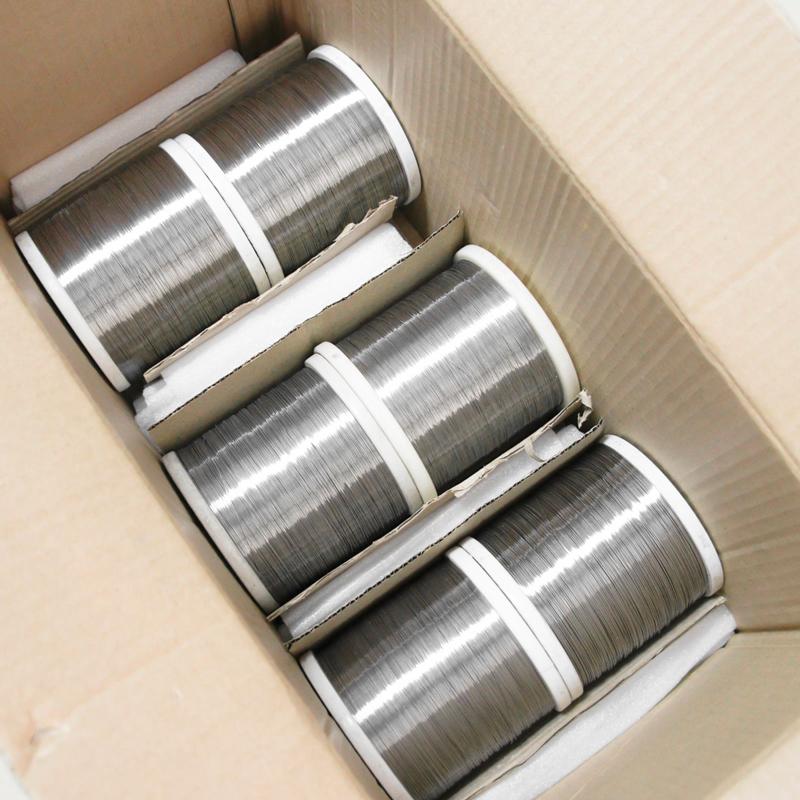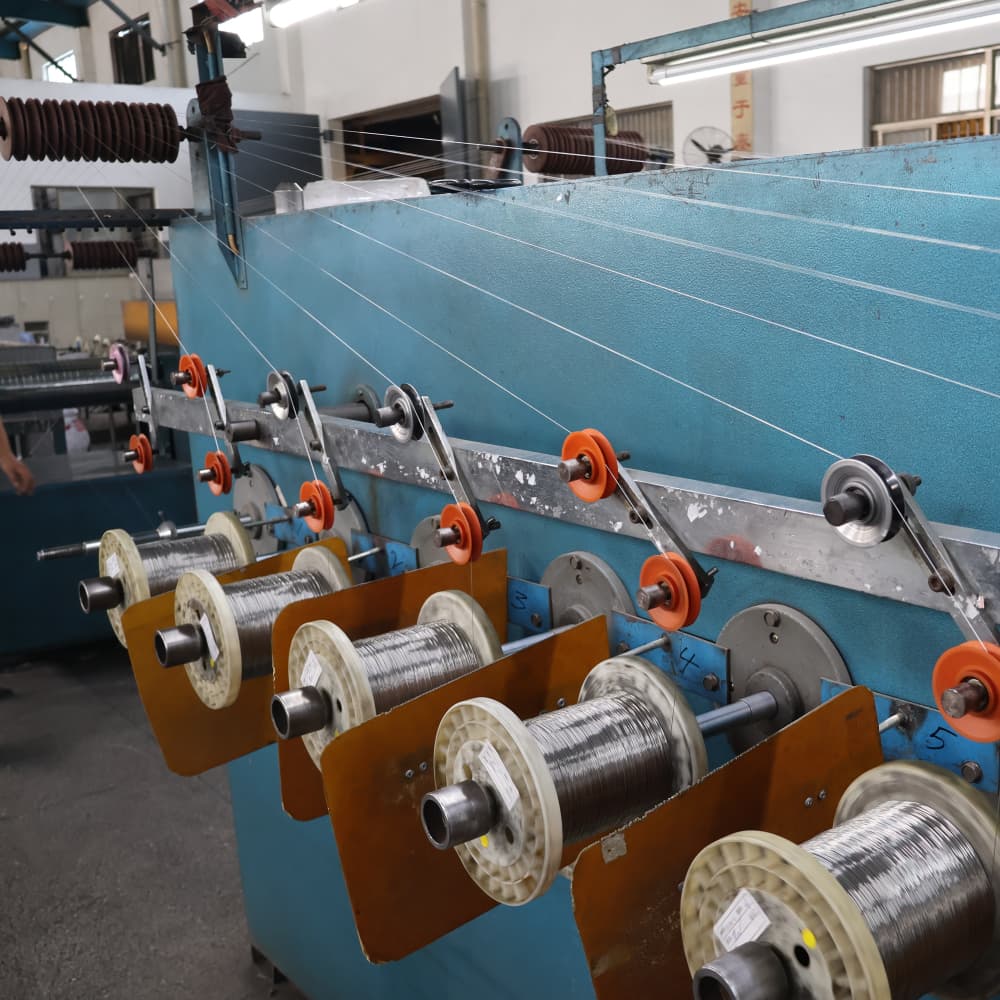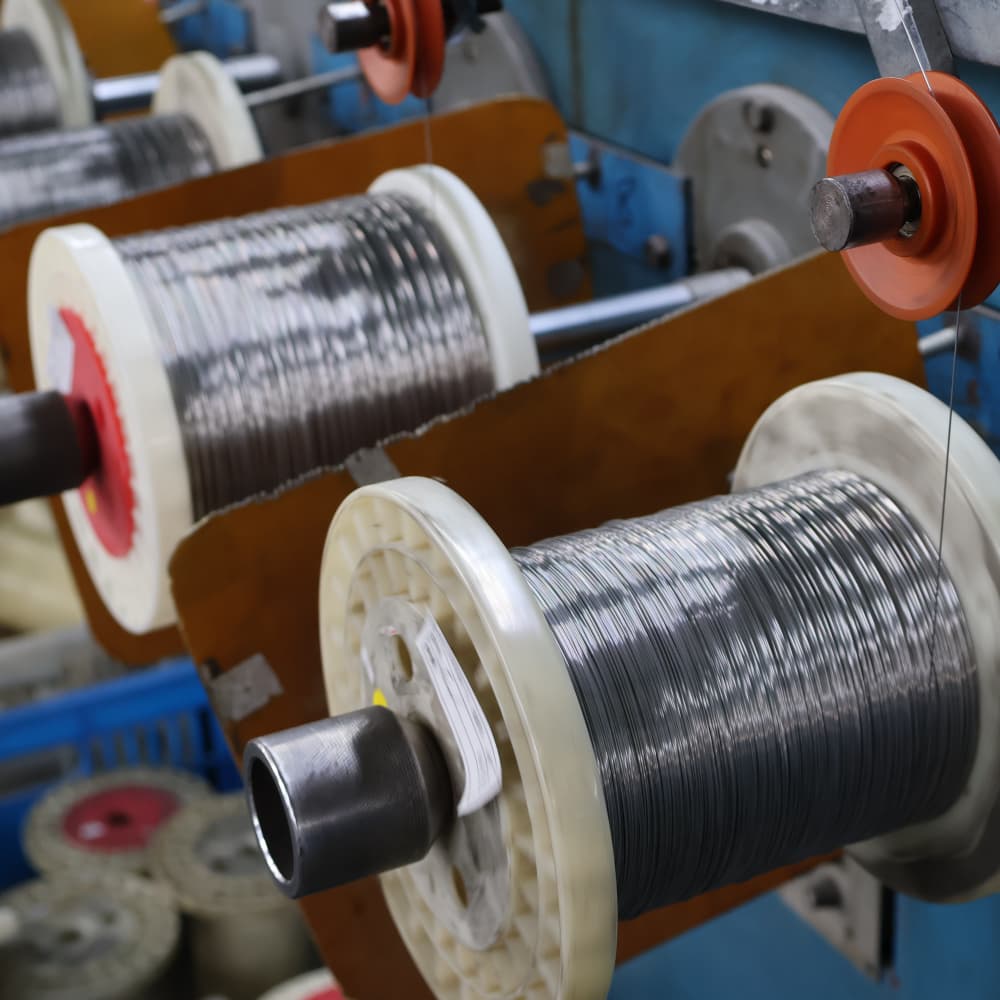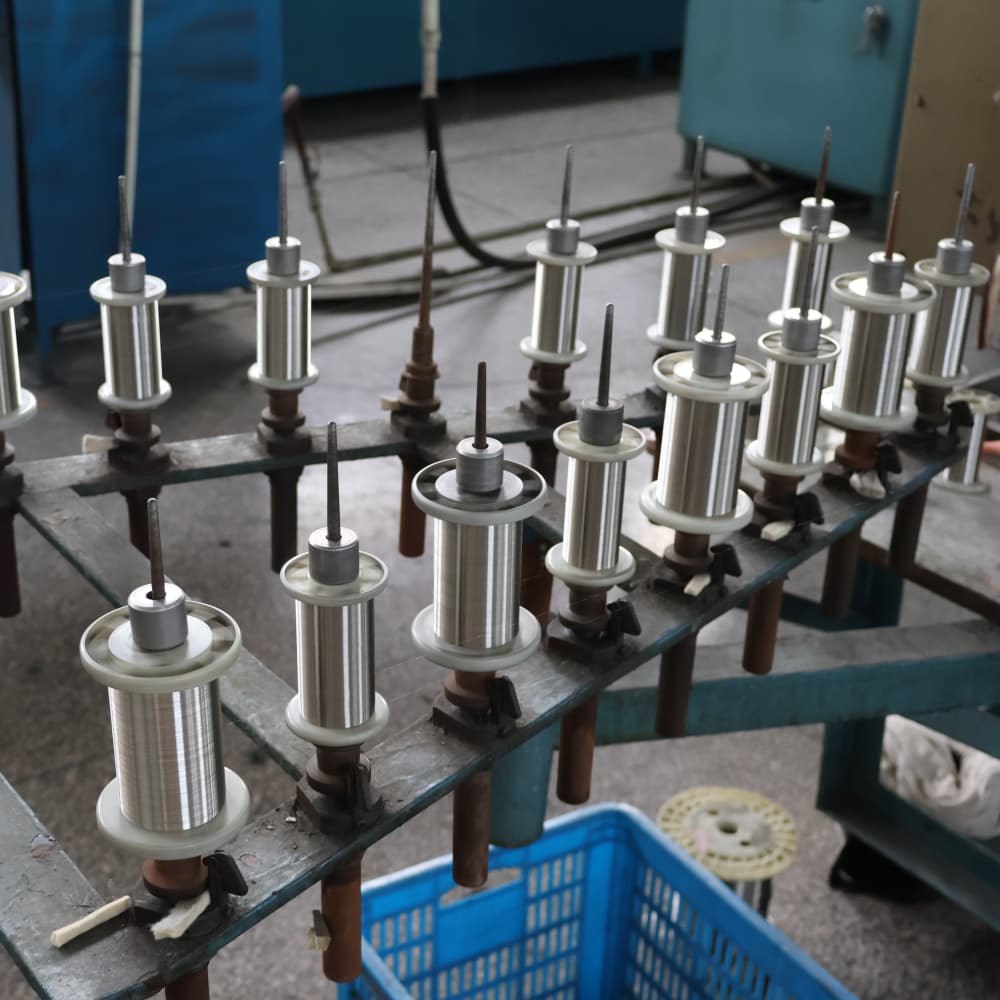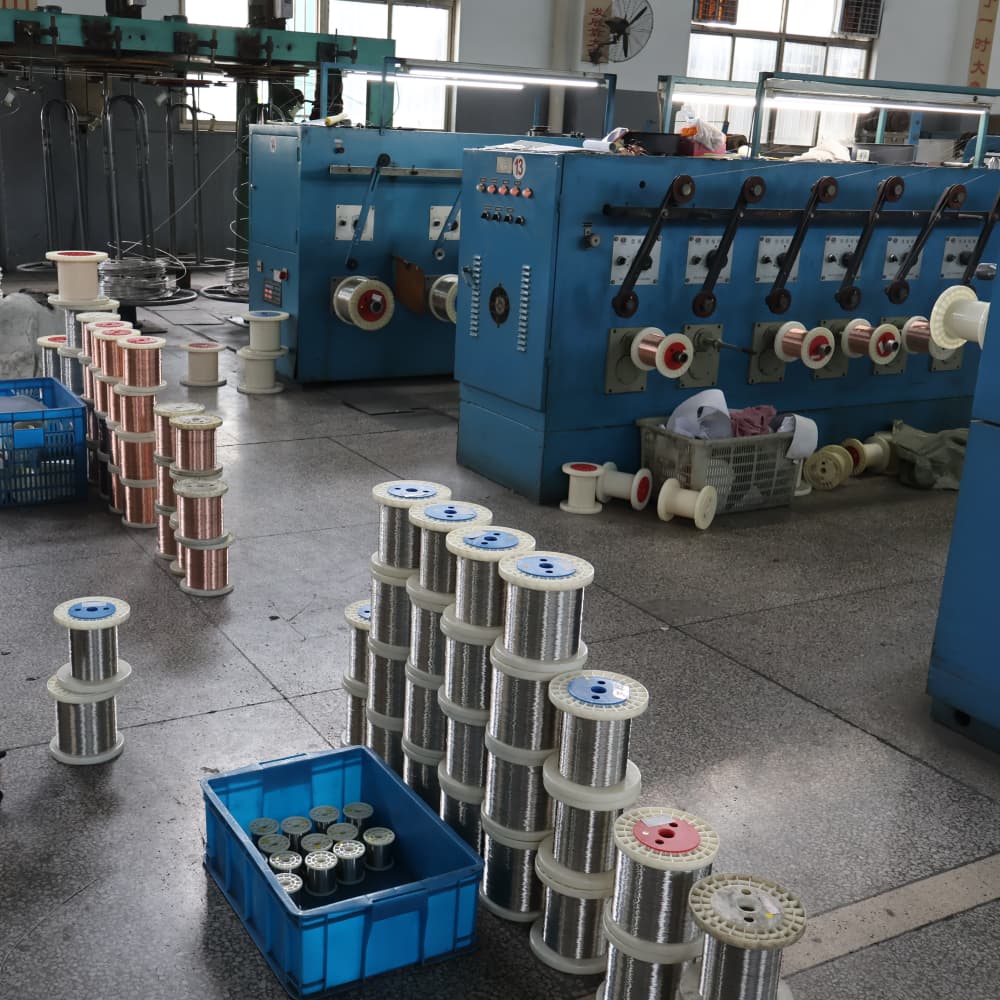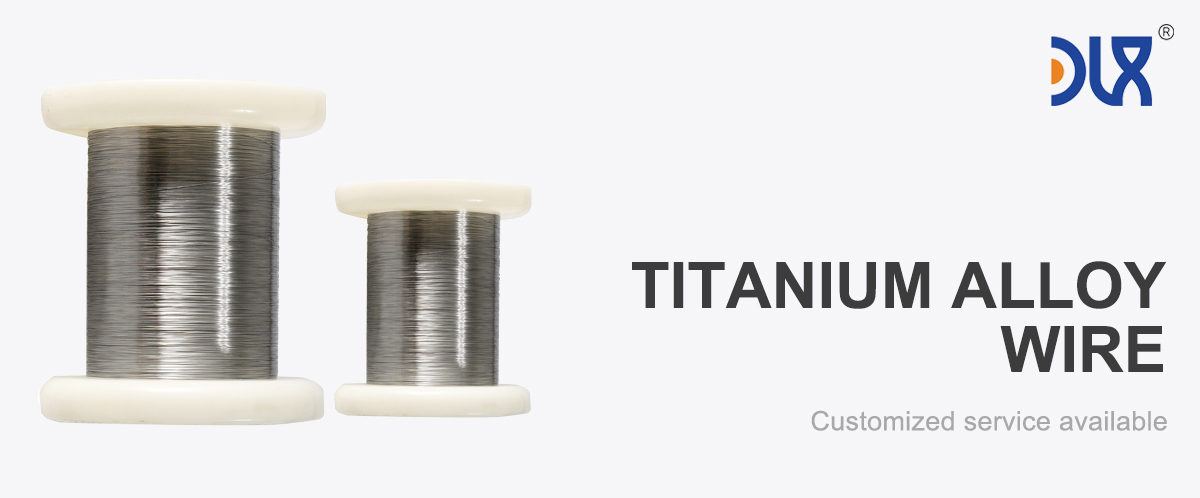
Our corrosion-resistant Titanium Alloy wire is built to thrive in the toughest marine environments, where saltwater and extreme conditions demand materials that won’t quit. We primarily offer Grade 5 (Ti-6Al-4V) and Grade 2 Titanium Wire , with Grade 5 packing a punch with 6% aluminum and 4% vanadium for extra strength, and Grade 2 delivering pure titanium’s unmatched corrosion resistance. Both are perfect for marine applications like underwater cables, ship fittings, and offshore platform components.
Available in diameters from 0.1mm to 10mm, our wire comes in coils, spools, or custom-cut lengths to suit your needs. It meets ASTM B863 and ASME SB863 standards, ensuring top quality for marine projects. The wire’s standout feature is its ability to resist corrosion in seawater, where other metals like stainless steel can falter with pitting or crevice corrosion. Lightweight yet strong, it’s ideal for reducing weight in marine structures while maintaining durability. Whether you’re building submersibles or offshore rigs, our titanium alloy wire is your go-to solution.
Our titanium alloy wire is a beast when it comes to marine performance. Grade 5 offers a tensile strength of 900-1000 MPa, outmuscling Grade 2 (345-450 MPa) and even 316L stainless steel (485-620 MPa), making it perfect for high-stress applications like propeller shafts or marine fasteners. Grade 2, while less strong, is highly ductile, allowing for easy forming into intricate components like underwater sensor housings. Both grades laugh off seawater corrosion, unlike stainless steel, which can suffer from pitting in saline conditions.
The lightweight nature of titanium—about half the density of steel at 4.43-4.51 g/cm³—means you can cut weight without sacrificing strength, a big win for fuel-efficient ships or buoyant underwater systems. Both grades handle temperatures from freezing ocean depths to 600°F (316°C) for Grade 5 and 400°F (204°C) for Grade 2, ensuring reliability in diverse marine climates. While Grade 5 is trickier to machine due to its hardness, our advanced manufacturing processes make it hassle-free, delivering smooth, high-quality wire every time.
Industry Analysis: Trends Driving Titanium Alloy Wire Demand
The marine industry is navigating some exciting changes, and our titanium alloy wire is right at the heart of it. With global trade relying heavily on maritime transport and offshore energy projects like wind farms and oil platforms on the rise, the demand for corrosion-resistant materials is surging. Titanium’s ability to withstand seawater without degrading makes it a top choice for modern marine engineering. The push for sustainability is also a big factor—lighter materials like our wire help reduce fuel consumption in ships, aligning with eco-friendly goals.
Additive manufacturing is shaking up the marine sector, allowing for complex, lightweight components with minimal waste. Our titanium alloy wire is ready for 3D printing, enabling innovative designs like custom fittings or lightweight structural parts. The growth of deep-sea exploration, from submersibles to underwater drones, is another driver, as these applications need materials that can handle high-pressure, corrosive environments. Our wire’s durability makes it a perfect fit.
Cost is always a consideration, as titanium is pricier than stainless steel due to its complex production. But advancements in extraction and recycling are making it more affordable, and our efficient manufacturing keeps prices competitive. Sustainability trends are also pushing the industry toward greener practices, and we’re on board, using eco-friendly methods to produce our wire while maintaining top-tier quality.
| Titanium (Ti) | Aluminum (Al) | Vanadium (V) | Tin (Sn) | |
| Ti-6Al-4V | Rest | 5.5%-6.8% | 3.5%-4.5% | |
| Ti-5Al-2.5Sn | Rest | 4.5%-5.5% | 2.0%-3.0% |
Physical Properties
| Density | 4.4-4.5g/cm³ |
| Melting Point | 1660°C |
| Coefficient of Thermal Expansion | 8-10×10⁻⁶/K (20°C-500°C) |
| Thermal Conductivity | 6-22 W/(m·K) (depending on alloy grade) |
| Electrical Resistivity | 0.14-0.17 μΩ·m |
| Tensile Strength | 600-1200 MPa (depending on alloy grade) |
| Yield Strength | 480-1100 MPa |
| Elongation at Break | 10%-25% |
| Hardness | 200-400 HB |

For more details, pls directly contact us.
Our titanium alloy wire is a workhorse in marine environments. Grade 5 is ideal for high-strength components like propeller shafts, marine fasteners, and offshore platform supports, where its strength-to-weight ratio shines. Grade 2, with its superior formability, is perfect for underwater cables, sensor housings, and corrosion-resistant fittings that need to flex without breaking. Both grades are used in shipbuilding for parts exposed to seawater, ensuring long-term reliability.
Beyond marine, our wire finds a home in other industries. In aerospace, Grade 5 is used for structural components and engine parts, while Grade 2 suits non-structural applications. Medical implants leverage both grades for their biocompatibility, and chemical processing plants use them for corrosion-resistant piping and valves. But in marine settings, our wire truly stands out, delivering performance that keeps ships, rigs, and underwater systems running smoothly in the harshest conditions.
Company Advantages: Why Choose Us
When it comes to titanium alloy wire for marine applications, we’re the ones to beat. Our years of expertise in titanium manufacturing mean we deliver wire that meets the toughest industry standards, like ASTM B863 and ASME SB863. We use cutting-edge facilities to produce wire with consistent quality, from composition to surface finish, ensuring it performs flawlessly in marine environments.
Flexibility is a huge part of what sets us apart. Whether you need ultra-fine wire for delicate underwater sensors or heavy-duty coils for offshore platforms, we customize to your specs. Our just-in-time supply chain means you get exactly what you need, when you need it, without overstocking costs. We’re also ahead of the curve on industry trends, investing in R&D for additive manufacturing and sustainable production to keep our wire ready for the future.
Our technical support team is always ready to help, whether you’re choosing the right grade or troubleshooting a marine application. We keep costs competitive by optimizing our production and sourcing high-quality raw materials, so you get premium titanium wire without the premium price tag. Our commitment to sustainability means we’re using greener methods to produce wire that aligns with the marine industry’s eco-conscious shift. When you choose our titanium alloy wire, you’re getting a partner who’s all about quality, innovation, and reliability.
Comparison Parameters Table
|
Parameter |
Grade 5 Titanium Wire (Ti-6Al-4V) |
Grade 2 Titanium Wire |
316L Stainless Steel Wire |
|---|---|---|---|
|
Composition |
6% Al, 4% V, 90% Ti |
99.2% Ti (pure) |
Fe, 16-18% Cr, 10-14% Ni, 2-3% Mo |
|
Tensile Strength |
900-1000 MPa |
345-450 MPa |
485-620 MPa |
|
Yield Strength |
~830 MPa |
~275 MPa |
~170 MPa |
|
Density |
4.43 g/cm³ |
4.51 g/cm³ |
8.0 g/cm³ |
|
Corrosion Resistance |
Excellent (seawater, no pitting) |
Excellent (seawater) |
Good (prone to pitting) |
|
Heat Resistance |
Up to 600°F (316°C) |
Up to 400°F (204°C) |
Up to 1600°F (870°C) |
|
Formability |
Moderate (less ductile) |
High (very ductile) |
High |
|
Weldability |
Good (inert gas needed) |
Excellent |
Excellent |
|
Applications |
Marine, aerospace, medical |
Marine, medical, chemical |
Marine, industrial |
|
Cost |
Higher (alloyed) |
Lower (pure titanium) |
Lowest |
The future of titanium alloy wire in marine applications is looking strong. As offshore wind farms, deep-sea exploration, and sustainable shipping grow, the need for corrosion-resistant, lightweight materials will only increase. Our wire is ready to meet these demands, from supporting next-gen offshore platforms to enabling lightweight ship designs. Additive manufacturing will continue to open new possibilities, and we’re already preparing to supply wire for 3D-printed marine components.
Emerging technologies like autonomous underwater vehicles and marine robotics will also rely on materials like our titanium wire for their durability and corrosion resistance. With the industry moving toward greener practices, our focus on sustainable production will keep us ahead of the game. Whether it’s a new cruise ship or a deep-sea research mission, our titanium alloy wire is poised to make waves in the marine world.
Conclusion
Our corrosion-resistant titanium alloy wire is the ultimate choice for marine environments, offering unbeatable strength, lightweight properties, and resistance to seawater corrosion. From underwater cables to offshore platforms, it delivers performance you can trust. With industry trends pushing for sustainability and innovation, our wire is ready to power the future of marine engineering. Backed by our expertise, flexible production, and commitment to quality, choosing our titanium alloy wire means choosing a partner that’s built to last in the toughest conditions.
For more details, pls directly contact us.
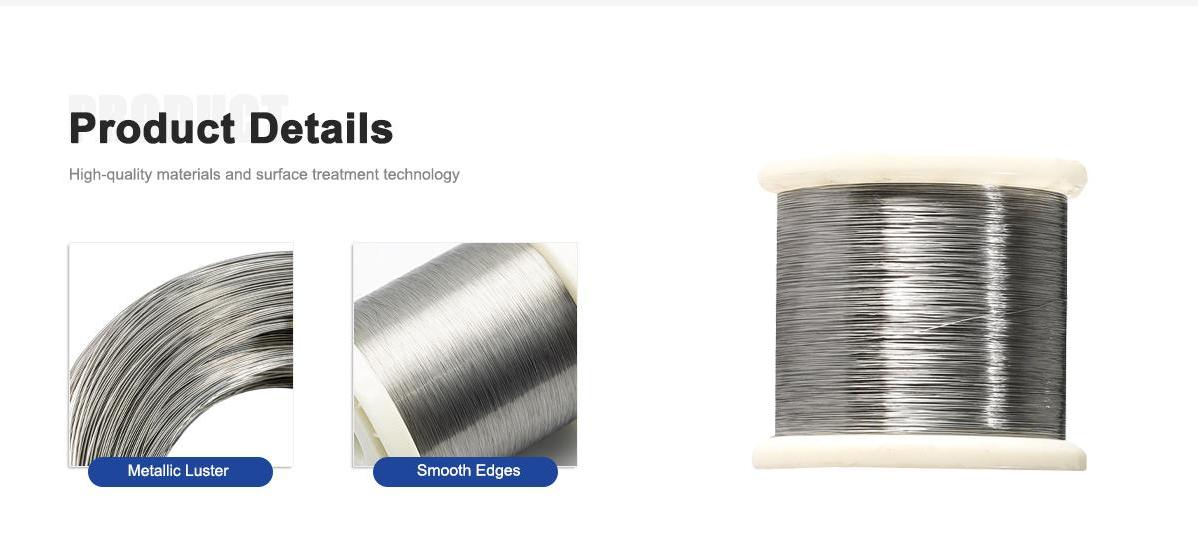
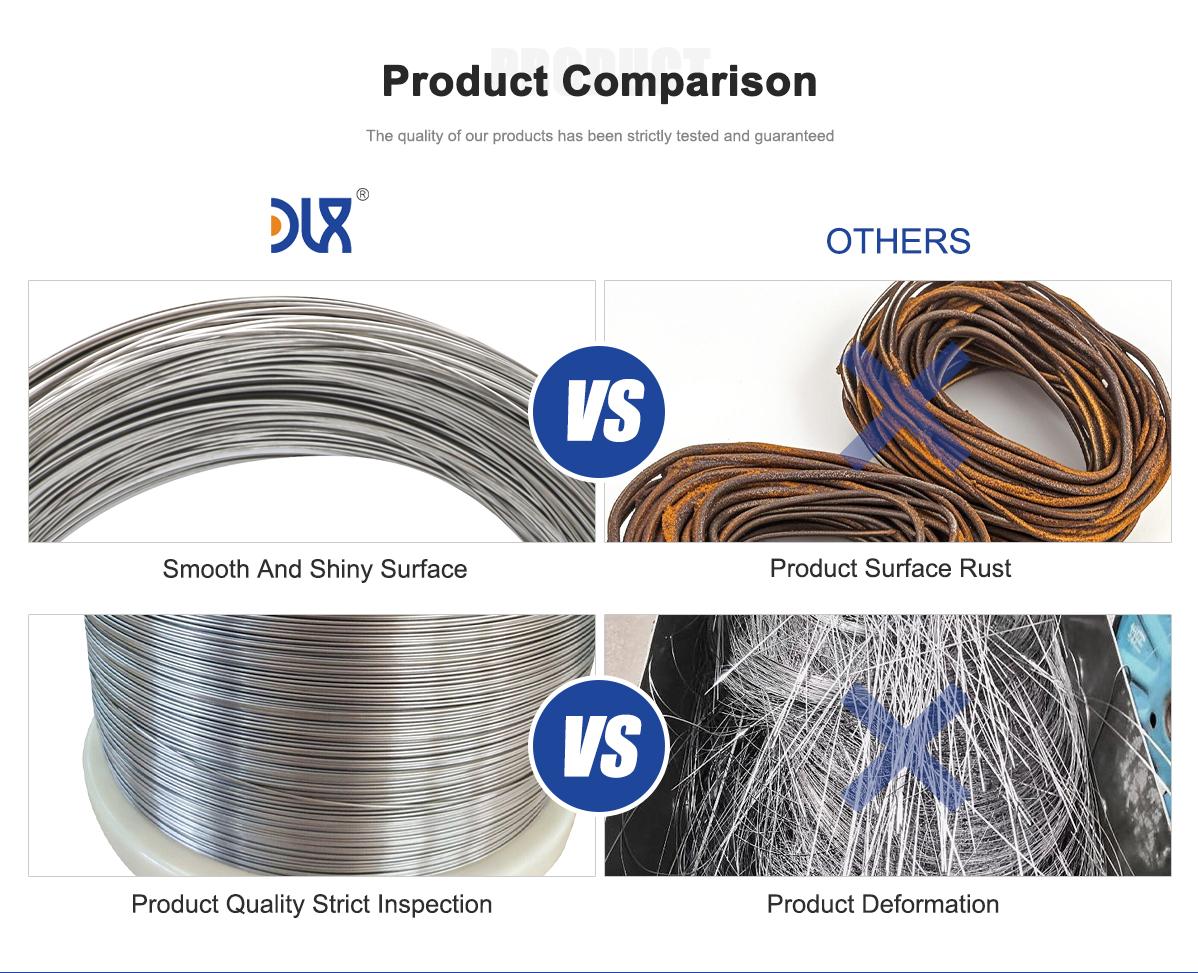
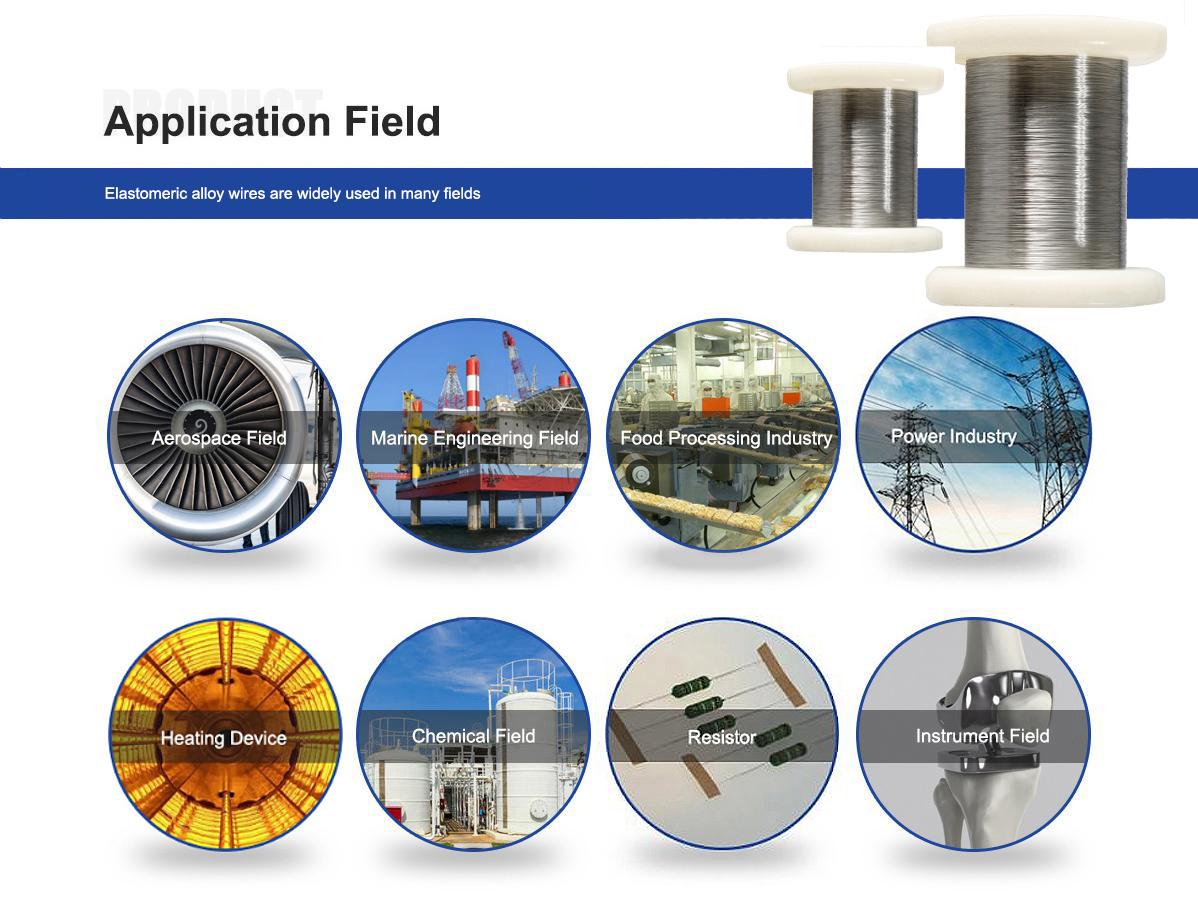
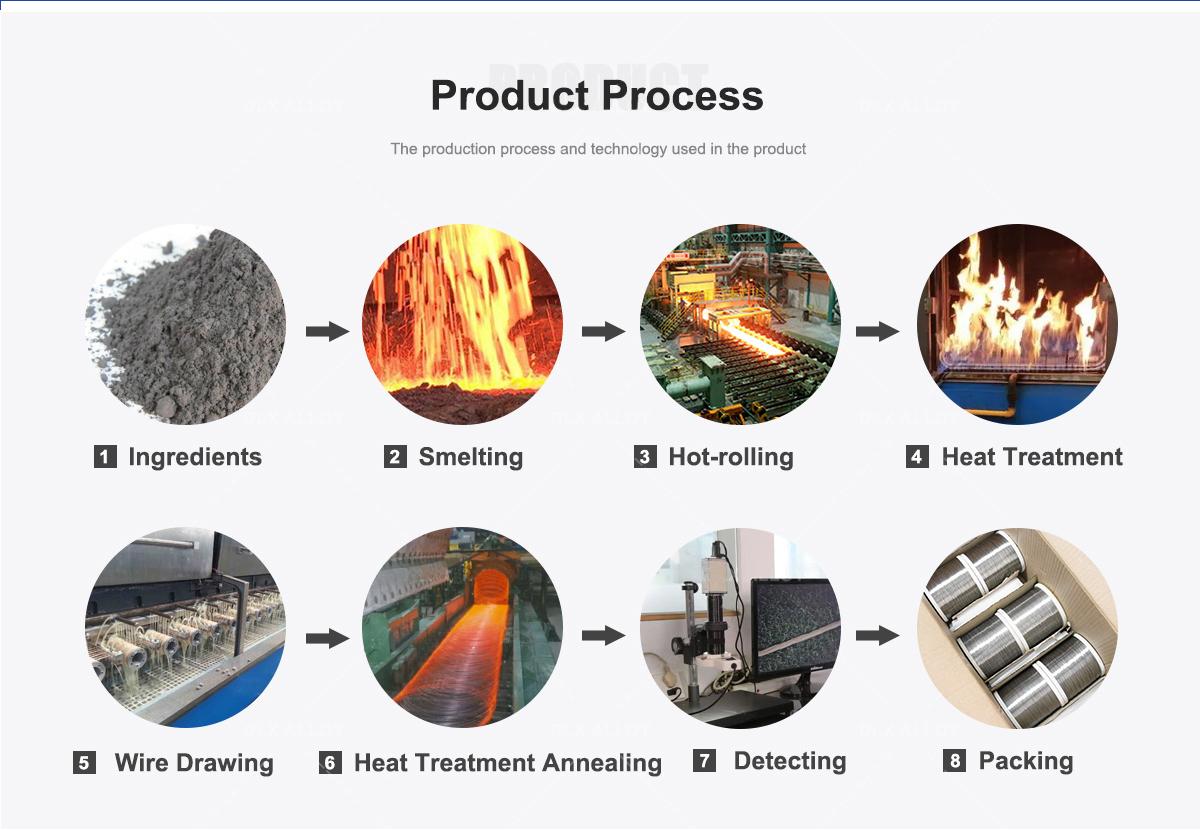
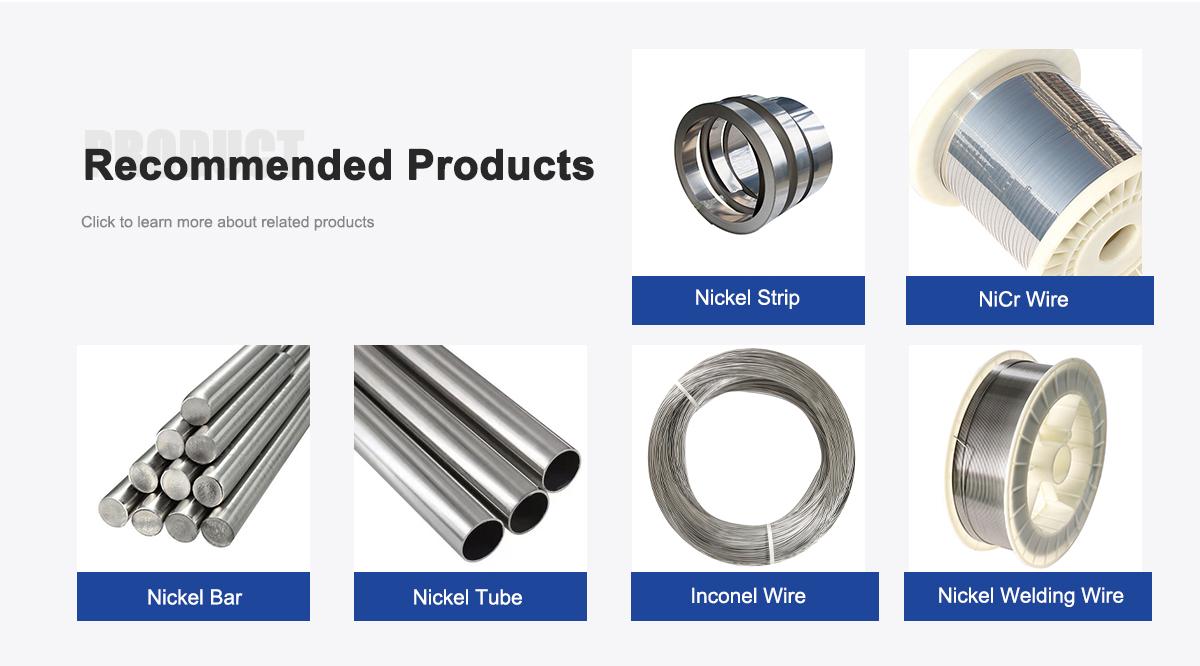
About Us:
Our 12,000㎡ factory is equipped with complete capabilities for research, production, testing, and packaging. We strictly adhere to ISO 9001 standards in our production processes, with an annual output of 1,200 tons. This ensures that we meet both quantity and quality demands. Furthermore, all products undergo rigorous simulated environment testing including high temperature, high pressure, and corrosion tests before being dispatched, ensuring they meet customer specifications.
For all our clients, we offer timely and multilingual after-sales support and technical consulting, helping you resolve any issues swiftly and efficiently.
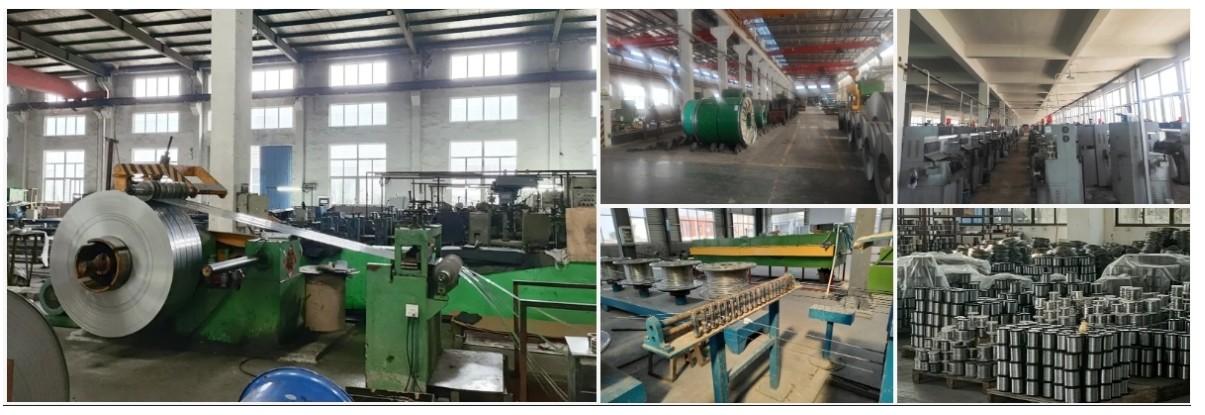
Client Visits
Building Stronger Partnerships
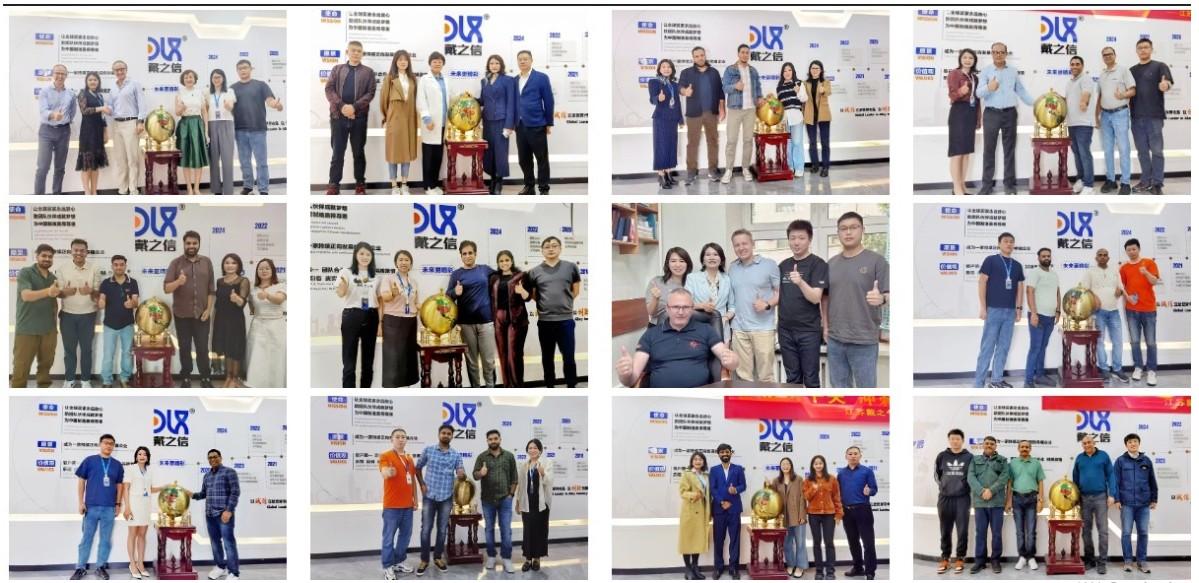
We support all kinds of testing:
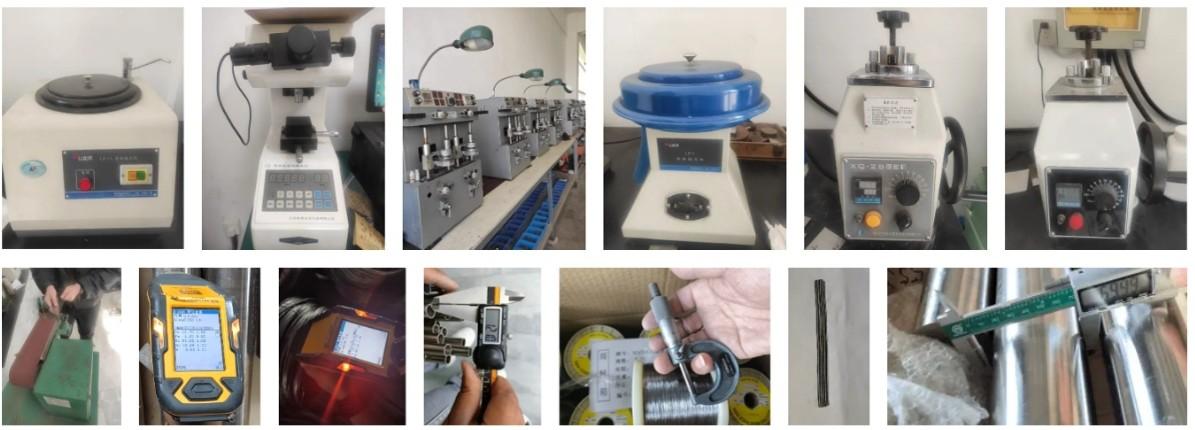

FAQs:
-
What is titanium alloy wire for marine environments made of?
It’s primarily Grade 5 (Ti-6Al-4V) or Grade 2 titanium, with Grade 5 containing 6% aluminum and 4% vanadium for added strength, and Grade 2 being 99.2% pure titanium for maximum corrosion resistance. -
What are the main applications of titanium alloy wire in marine environments?
It’s used for underwater cables, ship fittings, propeller shafts, and offshore platform components due to its resistance to seawater corrosion. -
How does titanium alloy wire compare to stainless steel in marine settings?
Titanium alloy wire offers superior corrosion resistance in seawater compared to stainless steel, with a better strength-to-weight ratio and no pitting or crevice corrosion. -
Is titanium alloy wire suitable for deep-sea applications?
Yes, it withstands high-pressure, saline environments, making it ideal for deep-sea cables, submersibles, and marine sensors. -
Can titanium alloy wire be welded for marine applications?
Absolutely, it’s weldable with proper inert gas shielding, ensuring strong, corrosion-resistant joints for marine structures. -
What industries besides marine use titanium alloy wire?
It’s used in aerospace, medical implants, and chemical processing for its strength, lightweight properties, and corrosion resistance. -
How does titanium alloy wire perform in extreme marine temperatures?
It maintains strength and corrosion resistance in temperatures from sub-zero to 600°F (316°C), perfect for harsh marine climates. -
What are the industry trends for titanium alloy wire in marine applications?
Growing demand for offshore energy, sustainable materials, and lightweight marine components is driving its use, with 3D printing gaining traction.

